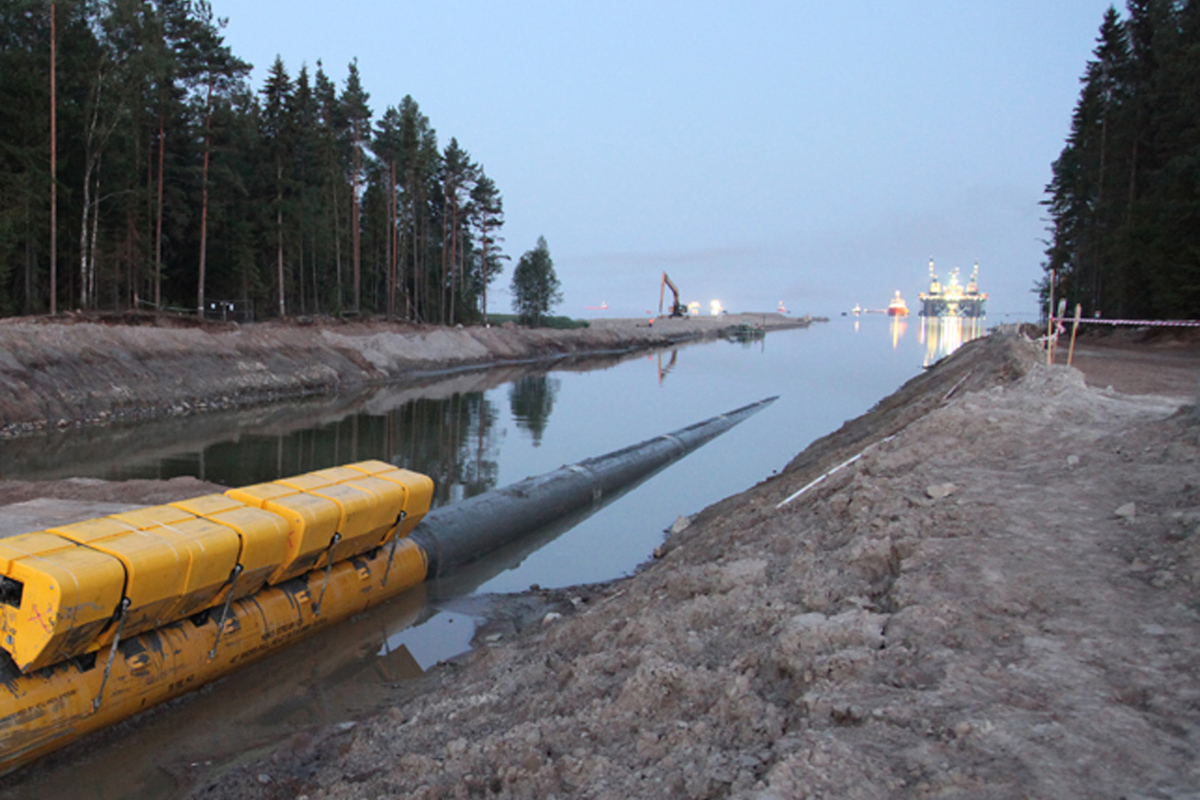Poland has forgiven Russia for the blown up Nord Streams
[ad_1]

Export gas pipelines to the EU are ready for restoration
The Polish Court of Appeal has finally overturned the nearly $7 billion fine imposed five years ago on Gazprom for laying the Nord Stream 2 pipeline across the Baltic Sea. This raw material route, capable of providing Europe with affordable energy resources, was destroyed in September last year under unclear circumstances, just a few days before it was put into operation. The decision of the Warsaw jurisdiction, of course, is not a pretext for increasing the supply of “blue fuel” from our country, but the incentives for restoring a cheap Russian energy route to consumers of the Old World, on which European parliamentarians insist, are becoming more and more.
The Russian Gazprom is not obliged to pay Poland more than 29 billion zlotys ($6.84 billion) for the construction and operation of the Nord Stream 2 gas pipeline. These fines were imposed in 2020 by the Polish Office of Competition and Consumer Protection (UOKiK) for creating a structure responsible for the construction and operation of such a high-tech facility.
Two years ago, in addition to Gazprom, the Polish UOKiK fined five more European counterparties of the Russian monopoly: the French Engie, the German Uniper and Wintershall Dea, the Austrian OMV and the Anglo-Dutch Shell. According to the Polish regulator, the merger of the largest continental fuel corporations could lead to a restriction of competition, which would be a reason for violating antitrust laws. Preliminary fines already seemed unconvincing to representatives of the global commodity market, however, such restrictions prevented the creation of a single operator for the construction of the gas pipeline. Together with other not entirely clear factors (in particular, the builders of SP-2 were accused of violating fishing in the pipeline zone), this reason delayed the launch of a new export route from Russia to Europe for several months. However, the opening of the new pipeline never took place – in the fall of 2022, the Baltic pipelines were blown up and the supply of “blue fuel” through the operating lines of this system completely stopped. Europe lost about 50 billion cubic meters of annual supplies of Russian gas, and our country lost approximately $10 billion in revenue from the sale of hydrocarbons to consumers in the Old World.
According to the General Director of the Institute of National Energy, Sergei Pravosudov, while rejecting previous punitive claims against Gazprom, the Polish legal system does not refute the claims against Russian energy resources themselves. Warsaw assured European inspectors that SP-2 would cause hypothetical damage to the national economy of its state. Since financing for the construction of the pipeline was initially distributed to European holdings, the investment program for creating the route had to be changed – the largest continental buyers from shareholders turned into only creditors of the gas pipeline consortium. Then Polish lawyers, represented by the Court of Appeal, admitted that the verdict of such an organization as UOKiK goes beyond the competence of the national economy.
“This winter, European consumers are not facing a “gas hunger strike” – the continent’s reserves reach 98% of the potential volumes of underground storage. However, it is better to sum up the results in the first spring days of next year,” Pravosudov notes. — The categorical shortage of “blue fuel” that Europe may face in winter threatens to quickly exhaust the created reserves. It is not for nothing that German parliamentarians demand the immediate restoration of the destroyed Nord Streams. These gas pipeline systems from Russia can become a fuel “floater”, ready to save the continent’s population from rising prices for housing and communal services and general inflationary progression.”
The cancellation of the decision of the Polish department will not become a precedent for the elimination of other Western restrictions, in particular, cost “ceilings” on Russian oil and gas. However, even Polish jurisdiction, whose attitude towards Russia can be assessed as extremely negative, now provides grounds for challenging other provocative decisions taken regarding the export of Russian energy resources to the west.
[ad_2]
Source link






